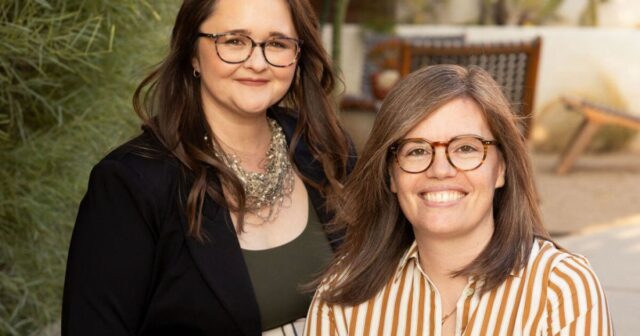Certified financial planners Katrina Soelter and Leighann Miko didn’t see
“It’s not just about grow, grow, grow, grow,” Soelter said in an interview. “It’s about: Am I doing
Independence, to them, means not only being an independent contractor for tax purposes, but also having the freedom to focus on something other than the numbers that tend to traditionally signify advisors’ success: assets under management, scale and revenue.
But, in a
Soelter and Miko announced Wednesday
Avise, headquartered in Los Angeles, is an RIA that offers comprehensive support services to help advisors grow their business in an affordable way. Specifically, it’s looking to serve only CFPs who are fee-only and fiduciary,
Avise offers what it claims is a first-of-its-kind business model in the industry: Advisors are 1099 contractors with the platform, and it operates as a cooperative that gives each member one equal vote on the board, allowing them to weigh in on major business decisions. This will allow the firm “to harness the ingenuity of all advisors, regardless of their AUM or size,” the firm said in its press release. “Further, the community of like-minded advisors on the Avise platform creates inherent partnership and
Additionally, Soelter and Miko said, Avise will pay a “patronage dividend” to all members when it has a surplus. The firm is planning to not take private equity money, Miko said, which can help it maintain control over its priorities and not feel bound to a mandate for rapid growth at the expense of other things that some young advisors might want to prioritize, like delivering financial planning to less affluent communities in America that could really use
READ MORE:
Soelter and Miko funded Avise with a combined $60,000 of their personal savings, and have commitments of roughly $150,000 in funding from individual wealthy investors who have agreed to finance the initial launch and operations. They are charging only 15% for use of the platform on the first $500,000, 10% on the next $500,000 and 5% for anything above that, while similar platforms charge 30% to 40%, a firm spokesperson said in an email.
“Our pricing is incredibly competitive, quite frankly,” Miko said. “We are what I would consider the lower end of the spectrum when you look at these bigger firms who are offering these types of services, because we feel like the services that we’re providing are commensurate with that fee,” she said. The advisor keeps more dollars in their pocket, “which gives them more power and flexibility to choose how to work and who to work with.” It ultimately can empower advisors to serve more diverse populations, she said. Miko and Soelter have up to now run
The firm has named startup Altruist and broker-dealer giant Charles Schwab as custodian partners (although Avise advisors may choose any custodian), according to its
READ MORE:
The move comes as
When it comes to the world of independence, the word can mean many different things in practice and be confusing to a young advisor. “We’re seeing that a lot of advisors are fearful of what it would mean to be totally independent, completely independent,” Soelter said. “All of the backend work that goes into running a company is a lot of work. And they want to focus on working with their clients.”
It’s hard to find a Goldilocks solution in the marketplace for such advisors, Soelter said, adding that advisors don’t want to start “completely from scratch” but also don’t want to lose ownership and autonomy. “That’s a tension that we’re seeing in the industry.”
So far one financial advisor has joined the platform since its soft launch — the firm was registered in SEC records as of November 2023, but had waited until January to put out a press release. David Tassone, the principal of Solidi Wealth Advisors and the first advisor on the Avise platform, said in a statement, “Avise is the platform I always knew I needed but never knew existed. I started my firm to spend more time working with my clients, but I feared that more of my energy would be consumed by compliance and operations tasks.”
Sheryl Hickerson, CEO and founder of networking firm Females and Finance — a professional development group for women in financial services — said in an interview that she was excited to hear about Avise. “I think this is a really interesting business model,” she said. “They could potentially be on to something where building something out like this would be attractive, especially for smaller RIA firms who are looking to be acquired and are women-owned. This could be a way for them to come in and be fully supported and have mission-oriented work, but also join in a unique environment.”




